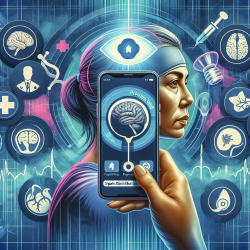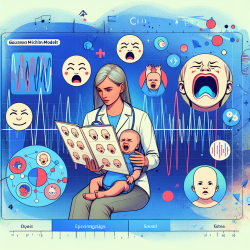Understanding the Landscape of mHealth Apps for Stroke Rehabilitation
The review identified 49 articles describing 38 unique mHealth apps developed to support various aspects of stroke rehabilitation. These apps primarily focused on:- Upper extremity function (31.5%)
- Medical management and secondary prevention (26.3%)
- Exercise, physical activity, and functional mobility (23.7%)
- Language and speech skills (20.5%)
Key Findings and Their Implications for Practitioners
The review highlighted several critical points that practitioners should consider:- Preliminary Nature of Studies: A majority of the studies were preliminary, focusing on development, usability, and pilot testing. This underscores the need for further research to validate the efficacy of these apps.
- Diverse Needs: The apps addressed a wide range of needs, from motor control to cognitive skills, but there is a noticeable gap in addressing psychosocial issues like anxiety, depression, and fatigue.
- Global Surge: There has been a significant increase in the number of studies on mHealth apps for stroke in recent years, indicating growing interest and potential for innovation in this field.
How Practitioners Can Implement These Findings
To leverage the potential of mHealth apps, practitioners can:- Stay Informed: Keep up-to-date with the latest research and developments in mHealth apps to identify new tools that can benefit your clients.
- Personalize Interventions: Use mHealth apps to tailor interventions to the specific needs of each client, whether they require support for motor skills, cognitive functions, or speech therapy.
- Encourage Self-Management: Empower clients to take an active role in their rehabilitation by using apps that promote self-management and continuous progress tracking.
- Advocate for Research: Participate in or support research efforts to validate the efficacy of mHealth apps, contributing to the evidence base that will guide future innovations.
The Path Forward
The findings from the scoping review emphasize the need for additional large-scale trials and longitudinal studies to establish the long-term benefits of mHealth apps. Practitioners play a crucial role in this journey by adopting these technologies, providing feedback, and advocating for further research.To read the original research paper, please follow this link: mHealth Intervention Applications for Adults Living With the Effects of Stroke: A Scoping Review.










